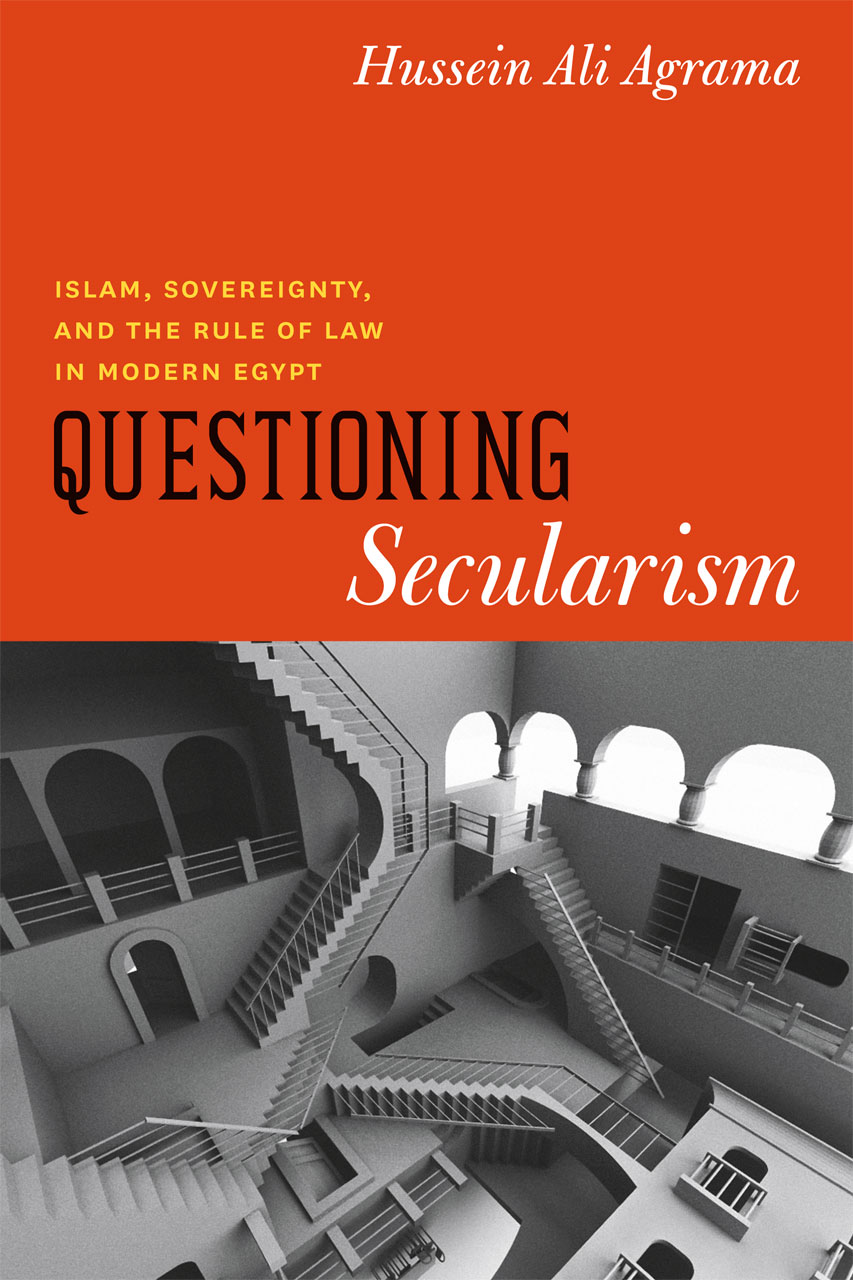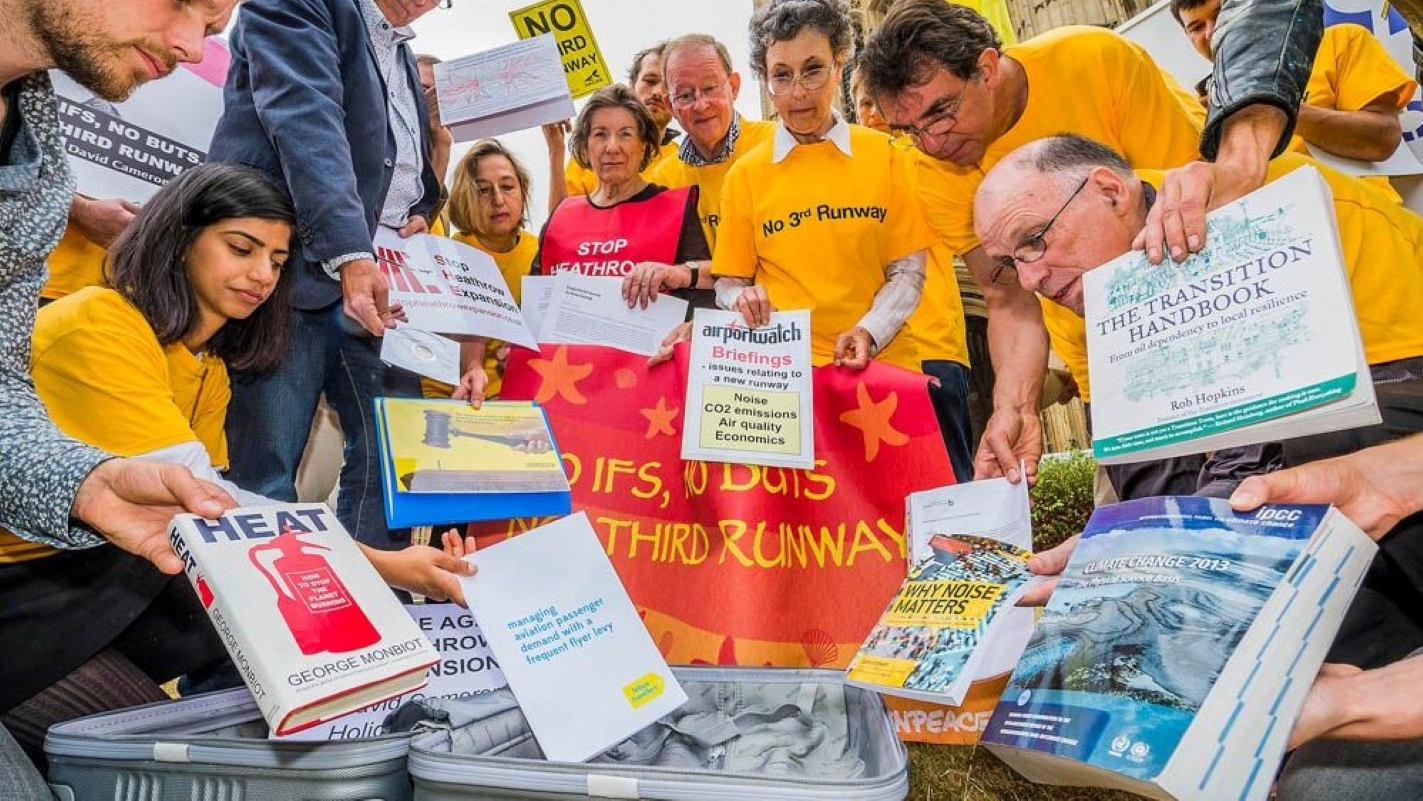 The central questions of the Arab uprisings—what is the appropriate relationship between religion and politics and what is the function of the national security state —have developed into a vigorous debate amongst actors from across the political spectrum. But what, exactly, is secularism? What is its relationship to the ‘deep state’ in Egypt? In Questioning Secularism, Hussein Ali Agrama focuses on the Fatwa councils and family law courts of Egypt just prior to the revolution, to argue that secularism is a historically contingent phenomenon that works through a series of paradoxes that it creates. He probes the meaning of secularism and the ambiguities that lie at its heart. Reviewed by Corinna Mullin.
The central questions of the Arab uprisings—what is the appropriate relationship between religion and politics and what is the function of the national security state —have developed into a vigorous debate amongst actors from across the political spectrum. But what, exactly, is secularism? What is its relationship to the ‘deep state’ in Egypt? In Questioning Secularism, Hussein Ali Agrama focuses on the Fatwa councils and family law courts of Egypt just prior to the revolution, to argue that secularism is a historically contingent phenomenon that works through a series of paradoxes that it creates. He probes the meaning of secularism and the ambiguities that lie at its heart. Reviewed by Corinna Mullin.
 Questioning Secularism: Islam, Sovereignty, And The Rule Of Law In Modern Egypt. Hussein Ali Agrama. University of Chicago Press. November 2012.
Questioning Secularism: Islam, Sovereignty, And The Rule Of Law In Modern Egypt. Hussein Ali Agrama. University of Chicago Press. November 2012.
Hussein Ali Agrama was finishing the manuscript for his book in late 2011 as the dramatic events that would eventually result in the ousting of Hosni Mubarak unfolded in Egypt. Questioning Secularism nevertheless provides a compelling lens through which to make sense of recent developments in Egypt, including ongoing forms of revolutionary mobilisation, the actions of a firmly entrenched ‘deep-state’, and attempts by various political elites to usurp revolutionary legitimacy. Combining insights from the anthropology of religion and law, the book makes two key claims: that liberal secularism is one of the principal means through which modern state power operates, and that spaces of ‘asecularity’ are the most evident means by which this power is resisted.
Agrama starts from the premise that, with respect to the modern state, the domains of the religious and the secular must be understood as ‘mutually constitutive of each other’ though often in ‘tense and contradictory ways’ (p. 1). Agrama begins by grappling with a paradox posed by Talal Asad’s contention that ‘the concepts, assumptions, sensibilities, and practices of secularism as a doctrine’ often work in a way ‘to undermine secularism as a modern political arrangement’ (p. 2). Agrama takes the secularism puzzle one step further, by seeking to understand not only why this undermining occurs, but also the modes and modalities through which it occurs. In order to do so, he makes the case for examining secularism as a ‘problem-space, constituted by a historical ensemble of questions and stakes and characterized by continual contestation’ (105).
In order to explore these tensions and paradoxes of secularism as it moves from doctrine to practice, Agrama examines the case of Egypt. This may seem a counterintuitive case by which to explore modern secularity, given the primary place of religion in the Egyptian state even before the Muslim Brotherhood’s ascent to power. But through a discussion of how state interventions in a ‘liberal direction’ (p. 3) have transformed even those areas of the Egyptian legal and institutional framework that clearly seem guided by religion and religious law, the author argues that Egypt is the ideal case to explore the ‘deeper anxieties’ concerning ‘contemporary secularity and our abilities to define and secure it’ (p. 3).
Islam as Discursive Tradition
In order to understand the dynamics of these legal transformations, and the affective-conceptual structures through which they function, Agrama undertakes a detailed ethnography of both the personal status courts and the Fatwa Council of Al-Azhar, both of which derive their decisions from Shari’a and deal with overlapping issues, in particular in relation to the private affairs of family. Although, as Agrama argues, the courts have come to operate according to very different ‘conceptual and affective relationships’ they nonetheless share similar roots in the set of 19th century British colonial-era legal and institutional reforms, when ‘the active principle of secularism, a public/private distinction, and a rule of law framework’ came to be established (p100).
As Agrama points out, it was only relatively recently that the fatwa and the court were separated into ‘exclusive spaces of their own’, entailing a gradual process of liberal legal reform that ‘aimed at bringing the Shari’a under the rule of law’ (p. 111). From then on, the courts would consist of a space in which all those features of the ‘rule of law’ would be invested, whereas the Fatwa Council would address those aspects ‘deemed irrelevant to the rule of law’. As such, a comparison between the courts and the council enables Agrama to highlight and map the complex interactions between two seeming disparate legal traditions and the resulting transformations that occur in the way in which Sharia’ is understood and practiced. In doing so, he also facilitates a more general understanding of the ways in which authority functions in the modern state (p.111).
The ‘Law’s Suspicion’ and Fatwa’s Authority
One of the key conclusions derived from this comparison is the distinction between the type of authority on display through the Fatwa Councils, in which rulings are often followed despite their non-binding character, as opposed to those of the personal status courts, which, though intended to be binding, are generally only follow when combined with some form of enforcement measure (p. 119). Many of the examples provided pertain to issues of marriage and divorce.
At the risk of over-simplification, Agrama argues that the reason the personal status courts are approached with greater suspicion, and are therefore denied the authority of the Fatwa Council, has to do with the modes and mechanisms by which liberal power operates. Most importantly, liberalism’s construction of the law as ‘subsequent to an a priori free self and therefore a suspect mode of domination external to it.’ In this sense, ‘vigilance and suspicion’ mutually enable the function and legitimacy of a liberal legal (and political) system. These are not ‘natural, default conditions, but are instead historically cultivated sensibilities whose cultivation depends integrally on modern legal processes’ (p. 127).
In this sense, one could conclude that the most effective means of resisting modern state power is not through vigilance and suspicion, but rather through the construction of an altogether separate space of authority. Putting aside important normative concerns over the alternative forms of exclusion and hierarchy such configurations might produce, Agrama comes to understand Fatwas as an area existing outside of the liberal state’s sovereign power (p. 180). In occupying a space of ‘asecularity’, Fatwas therefore resist the ‘mode of power’ that is derived from ‘vigilance against power’ (p. 179).
The National Security State and Sovereign State Power
In chapter six and then again in the epilogue, the book examines the relationship between the national security state and forms of sovereign state power. Here Agrama argues that the national security state infrastructure is a natural outcome of the expansion of liberal, secular power into the Egyptian state. This process results in the ‘normalization of constant threat’ and the transformation of the ‘emergency response into a disposition of the state and of everyday life’ (p. 232). This analysis has wide-ranging implications for how we understand Egypt’s decades-old national security state as well as the implications and logic of national security elsewhere in the world, in particular in light of the ‘war on terror’. For Agrama, the further entanglement of national security with secularist doctrine has, paradoxically, enabled ‘the growth of religiously rooted and resonant languages of justice’ (223).
Though the book contains a compelling ethnography of the discourses and practices of Islamist lawyers vis-a-vis the ‘Egyptian emergency state’, this component of the analysis perhaps could have been further enhanced by relating it back to a genealogy of the national security state, with its relationship to the other forms of modern state power discussed in this book more explicitly stated. In addition, it would have been interesting to consider the place of (neo)liberal economic power in this equation. In particular considering how central demands for social and economic justice were to the 2011 revolution, as well to the continuing forms of revolutionary mobilisation.
The Ongoing Revolution: Resisting or Reproducing Multiple forms of Sovereign State Power?
For Agrama, the revolutionary movement that emerged in late 2011 provided much cause for optimism, in particular in its seeming ability to transcend the logic of suspicion linked to secular state power. By bringing together diverse sectors of society animated by a set of agreed upon principles, in particular ‘that no one- no one person, group of people, social or economic class, religious or secular political orientation- should have a monopoly of power,’ this movement, like the Fatwa Council, seemed to operate in a space of ‘asecularity’. In this sense, it adopted a posture of ‘indifference to the question of where to draw a line between religion and politics’ (p. 232) Implicit in the protesters’ demands was not only their rejection of ‘the state of emergency that long obtained in Egypt but also against the underlying paradigm that had increasingly normalized it,’ and which had alienated Egyptian citizens not only from the state but also from one another (p. 232).
Agrama’s concluding sentence provocatively ties together the key themes of the book. ‘What matters,’ he argues ‘is not whether Islamists or liberals succeed in parliament, but whether state sovereignty succeeds in further asserting itself into social life, the state retains or increases its monopoly on politics, and the conceptual-affective structures through which secular power works will further dispose us to the paradigm of national security, which has dominated the globe’ (p. 235).
—————————————————-
Corinna Mullin is currently a Visiting Assistant Professor in International Relations at the University of Tunis as well as a Research Associate in the Department of Politics and International Studies at the School of Oriental and African Studies (SOAS). Her research interests include: U.S. foreign policy towards the Middle East, political Islam, identity politics, comparative political theory, transitional justice and the Arab uprisings. Read more reviews by Corinna.






